Media Marketing
Media Marketing
Media marketing has become an indispensable tool for businesses looking to gain visibility, attract customers, and achieve growth. As technology continues to evolve, so do the opportunities for marketers to reach their target audience. Whether it’s through social media marketing, video marketing, or content marketing, media marketing plays a vital role in shaping a company’s brand and increasing its online presence. At XIT Solution Team, we understand how to harness the power of media marketing to drive meaningful results.
This comprehensive guide will walk you through the strategies and best practices that can help you optimize your media marketing campaigns and achieve your business goals. From understanding the fundamental concepts to exploring advanced techniques, this article covers it all.
What is Media Marketing?
Media marketing refers to the use of various forms of media, including social media, blogs, videos, webinars, and more, to promote a product, service, or brand. It is designed to connect a business with its audience by creating engaging content that is shared across different platforms. The primary goal of media marketing is to build brand awareness, drive traffic, generate leads, and ultimately increase sales.
In today’s competitive marketplace, businesses can no longer rely on traditional forms of advertising alone. To stay ahead, marketers must develop and execute a multi-channel approach that leverages both organic and paid media. This ensures that businesses have maximum exposure across a variety of platforms where their target audience is most active.
The Importance of Media Marketing for Businesses
Media marketing offers numerous benefits for businesses, including:
1. Increased Brand Visibility
By creating engaging and shareable content, you can enhance your brand’s visibility. Social media platforms, blogs, and videos allow your content to reach a wider audience, which can significantly improve your brand’s presence in the market.
2. Enhanced Customer Engagement
Media marketing enables direct interaction with customers. Platforms like Instagram, Twitter, and Facebook offer an opportunity to engage with customers in real-time, answer their queries, and build long-term relationships.
3. Improved SEO and Website Traffic
Content created for media marketing purposes can also contribute to your website’s SEO efforts. By regularly posting high-quality content and sharing it across social platforms, you can improve your website’s search engine rankings and drive more organic traffic.
4. Cost-Effective Advertising
Compared to traditional advertising methods, media marketing is often much more cost-effective. With the right strategy, businesses can create compelling content that resonates with their audience without spending huge amounts on paid advertisements.
5. Better Targeting and Personalization
Media marketing allows for advanced targeting techniques. With platforms like Facebook and Google, businesses can target specific demographics, interests, and behaviors to ensure that their messages reach the right audience at the right time.
Media Marketing Platforms to Leverage
today’s fast-paced digital world, media marketing is one of the most powerful tools that businesses can utilize to promote their products and services, build brand awareness, and engage with their audience. As businesses continue to embrace digital transformation, it’s crucial to leverage the right media marketing platforms to maximize visibility, increase traffic, and drive sales.
There are numerous platforms available that enable businesses to connect with their audience in innovative ways. From social media to video content, blogs, and influencer marketing, each platform offers distinct advantages to cater to various marketing goals.
In this article, we’ll explore the top media marketing platforms and how businesses can effectively use them to boost their marketing campaigns.
1. Social Media Platforms: Harnessing the Power of Social Engagement
Social media platforms are among the most effective and widely used media marketing channels available. With billions of active users across platforms like Facebook, Instagram, Twitter, LinkedIn, and TikTok, social media offers businesses the opportunity to engage with a massive audience, build relationships, and strengthen their brand presence.
Why Social Media Marketing is Essential
- Global Reach: Social media connects businesses with audiences around the world, offering unparalleled reach.
- Audience Engagement: Social media platforms provide a direct line to communicate with potential customers. You can address concerns, gather feedback, and create interactive content that encourages discussions.
- Brand Awareness: By maintaining an active presence on social media, businesses can boost brand awareness, ensuring they stay top-of-mind for potential customers.
Best Practices for Social Media Marketing
To make the most of social media marketing, it’s essential to follow these best practices:
- Consistency is Key: Posting regularly helps you stay relevant and keeps your audience engaged. Develop a content calendar and maintain a consistent posting routine.
- Engage with Your Audience: Respond to comments, messages, and feedback promptly. Encourage conversations and create polls, quizzes, and contests to spark engagement.
- Content Variety: Diversify your content by sharing a mix of images, videos, infographics, stories, and blog posts. This keeps your audience engaged and allows you to experiment with different content formats.
- Leverage Analytics: Social media platforms come equipped with powerful analytics tools that help track the performance of your posts. Regularly monitor engagement metrics like likes, shares, comments, and click-through rates to refine your strategy.
Top Social Media Platforms for Business
- Facebook: With over 2.8 billion active users, Facebook is a powerful tool for businesses to engage with both B2C and B2B audiences. It offers robust advertising options to reach specific demographics.
- Instagram: Instagram is ideal for visually-driven businesses, particularly in industries like fashion, beauty, food, and lifestyle. Instagram Stories, Reels, and influencer collaborations help businesses engage customers in creative ways.
- LinkedIn: LinkedIn is a professional networking platform that is perfect for B2B marketing. It’s excellent for sharing industry insights, connecting with potential business partners, and generating leads.
- Twitter: Twitter’s fast-paced nature makes it ideal for real-time engagement, industry news, and customer support.
- TikTok: As one of the fastest-growing social media platforms, TikTok offers businesses the chance to engage with younger audiences through creative and viral video content.
2. Video Marketing: Visual Content That Engages and Converts
Video marketing has taken the world by storm, thanks to the growing consumption of video content across various platforms. Videos are among the most engaging forms of media, offering a unique way to tell stories, showcase products, and build an emotional connection with your audience.
Why Video Marketing Matters
- Higher Engagement: Video content generates higher levels of engagement compared to static content. Videos are more likely to be shared, commented on, and viewed multiple times.
- Emotional Connection: Videos allow businesses to communicate their message more effectively and emotionally. This can help forge a deeper connection with their audience.
- SEO Benefits: Video platforms, particularly YouTube, are the second largest search engine in the world. By optimizing video content for SEO, businesses can improve their visibility on search engines, drive organic traffic, and boost rankings.
Key Benefits of Video Marketing
- Showcase Products and Services: Videos are the perfect medium for demonstrating how products work, explaining services, and highlighting key features.
- Brand Storytelling: Through video, businesses can tell their brand story in a compelling way, connecting with their audience on a deeper level.
- Expand Reach: Video content can be shared across social media platforms, embedded on websites, and used in email marketing campaigns to increase exposure.
Video Marketing Platforms to Consider
- YouTube: YouTube is the largest video-sharing platform, with over 2 billion monthly active users. It’s an excellent platform for long-form videos, tutorials, and product demonstrations.
- Instagram Reels: Instagram Reels allows businesses to create short-form, engaging videos that are highly shareable, giving businesses the potential for viral success.
- TikTok: TikTok is ideal for businesses targeting a younger audience. With its short-form video content and music integration, TikTok enables businesses to create highly engaging and creative videos that capture attention.
- Vimeo: For businesses that need high-quality, ad-free video hosting, Vimeo offers a platform for more polished and professional video content.
3. Blogs and Written Content: Establishing Authority and Driving Traffic
While visual content like images and videos dominate, written content still holds significant value in the digital marketing world. Blogs remain one of the most effective ways to drive organic traffic, improve SEO rankings, and establish thought leadership.
Why Blogs Are Important for Media Marketing
- SEO Benefits: Well-optimized blogs can significantly boost your website’s SEO, helping you rank higher for relevant keywords and increase organic traffic.
- Thought Leadership: Regularly posting informative and valuable content helps position your business as an authority in your industry. It’s an excellent way to build trust with your audience.
- Long-Form Content: Long-form articles allow you to dive deeper into topics, providing substantial value and engaging your readers for longer periods.
Blogging Tips for Effective Media Marketing
- Keyword Research: Use SEO tools like Google Keyword Planner, SEMrush, or Ahrefs to identify high-ranking keywords in your industry and incorporate them into your blog posts.
- Create In-Depth Content: Write detailed, comprehensive articles that answer common questions, provide solutions, and offer value. The more in-depth the content, the more likely it is to rank well on search engines.
- Ensure Quality: Prioritize high-quality writing that’s easy to read and free of errors. Poorly written content can hurt your credibility and brand perception.
- Consistency: Post regularly to maintain an active blog. Consistency ensures that your audience always has fresh content to consume, and it keeps your website ranking high on search engines.
Platforms to Publish and Promote Blogs
- WordPress: WordPress is a powerful and customizable platform for hosting blogs. It offers many tools and plugins for SEO optimization.
- Medium: Medium is a popular blogging platform that allows you to reach a large audience and generate engagement through its built-in community.
- LinkedIn Articles: LinkedIn allows you to publish articles directly on your profile, positioning you as an authority in your industry.
4. Influencer Marketing: Expanding Your Reach Through Trusted Voices
Influencer marketing involves collaborating with individuals who have established trust and credibility with their audience. These influencers can help you expand your reach and boost your credibility by promoting your products or services.
Why Influencer Marketing Works
- Trust and Credibility: Influencers have built strong relationships with their followers, and their recommendations are often trusted more than traditional advertising.
- Expanded Audience Reach: By partnering with influencers, you gain access to a wider, often highly targeted, audience that aligns with your business’s products or services.
- Increased Conversions: Influencer partnerships can directly impact conversion rates by encouraging followers to take action, such as purchasing a product or signing up for a service.
How to Leverage Influencer Marketing
- Choose the Right Influencers: Select influencers whose audience aligns with your target demographic. Consider factors such as age, location, interests, and engagement rate.
- Establish Clear Expectations: Define the terms of your collaboration, including the type of content, timeline, and compensation.
- Track Campaign Performance: Use tracking links and analytics tools to measure the success of your influencer campaigns.
5. Podcasts and Webinars: Educating and Engaging Your Audience
Podcasts and webinars are two excellent platforms for businesses to share their expertise, build trust, and engage with their audience. Whether it’s through in-depth interviews, educational content, or live Q&A sessions, these platforms allow businesses to connect with their audience in real-time.
Why Podcasts and Webinars Matter
- Build Authority: Sharing valuable insights in podcasts and webinars positions your business as an expert in your field.
- Audience Engagement: Both podcasts and webinars provide an opportunity to engage with your audience through live discussions, questions, and feedback.
- Long-Lasting Content: Podcast episodes and webinar recordings can be reused, repurposed, and shared across different platforms, extending their lifespan.
Key Strategies for Podcasting and Webinars
- Create Compelling Content: Focus on topics that your audience cares about, whether it’s industry trends, how-to guides, or expert interviews.
- Promote Across Platforms: Use your website, social media, and email lists to promote upcoming podcasts and webinars to maximize attendance.
- Encourage Interaction: Allow audience members to ask questions and interact during live sessions, making the experience more engaging and valuable.
Conclusion
In today’s highly competitive business environment, media marketing is more important than ever. By leveraging the power of social media, video marketing, blogs, and influencer partnerships, businesses can significantly improve their visibility, engagement, and conversion rates. The key to success lies in creating high-quality, engaging content, making data-driven decisions, and staying consistent across all platforms.
At XIT Solution Team, we specialize in crafting tailored media marketing strategies that help businesses thrive in the digital world. Whether you need assistance with social media marketing, SEO, or content creation, our team is here to help you navigate the complexities of digital marketing and drive meaningful results for your brand.








